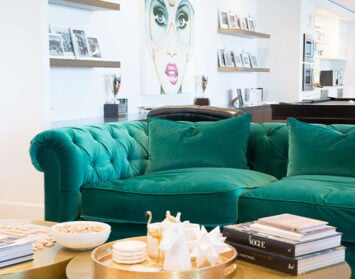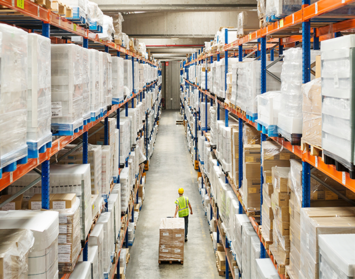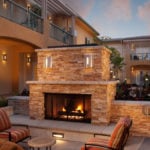A primer on glass, the sun’s rays and the future of office buildings
By John Jarvis
In workplace survey after workplace survey, when asked about what is most important in an office building environment, an abundance of natural light is always at the top of the list. But not all buildings are created equal. There is a profound development in commercial office construction which really hasn’t gotten the attention I believe it deserves. The increasing use, and the increasing quality of high-performance glass is an absolute game changer, and I think we are all taking it for granted. I get it, it’s just glass, maybe I’m mad as a hatter, but allow me to make my case and dabble in the history of glass a bit, and let’s see if I can’t convince you to take another look out and at your window. Come on, follow me down this rabbit hole.
That Damned Spandrel Glass
Have you ever heard of spandrel glass? It is a glass product that is intended to be opaque, blacked-out and painted over on the inside of the “glass.” Office tower designs typically include an interstitial space between floors to accommodate unsightly building elements such as air conditioning ductwork, cabling, sprinkler drops and ceiling grid suspension systems.
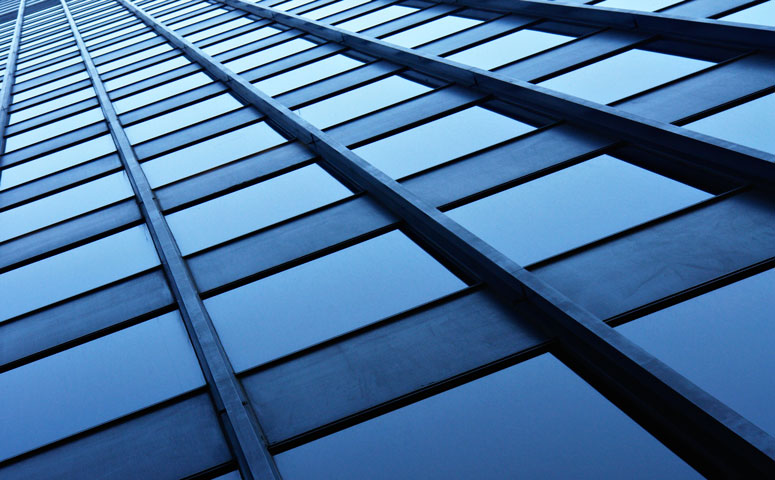
Architects often design office buildings with alternating bands of stone or other solid material between the horizontal line of windows on each floor. And before we had this stuff called high-performance glass, when you saw a building that looked on the outside like it was entirely glass, it actually had these intervening layers of this awful spandrel, non-light penetrating “glass” between each floor. From the outside, it can be hard to distinguish between the spandrel glass and the visible glass (except at night with the interiors illuminated).
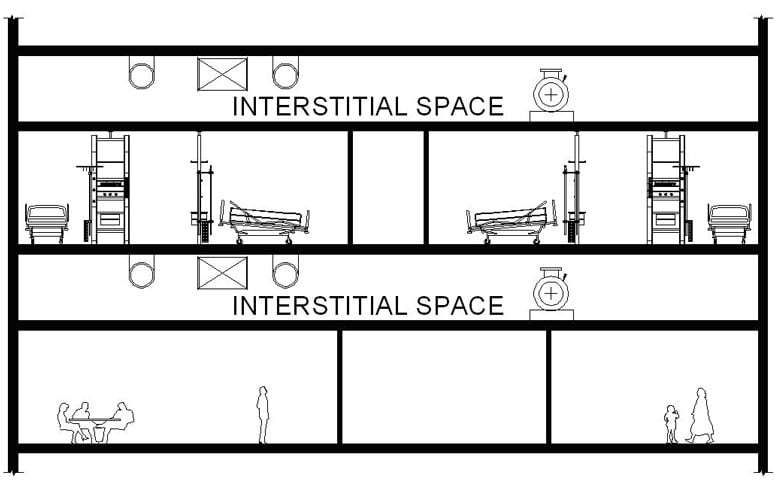
I remember when I first learned about spandrel glass. It was 1990, and a developer built a cool looking all-glass office tower, with a blue reflective glass from bottom to top. I remember thinking how cool it would be from the inside, with floor-to-ceiling glass. Except it wasn’t. Over half of that exterior window was that damned spandrel glass, which needed to be framed in and covered over on the inside of the space from about four feet off the floor down to the ground, and from about eight feet off the floor and above the ceiling grid. Which means that of the 10 or 12 feet from one floor to the next, only a four-foot high band was actually visible glass!
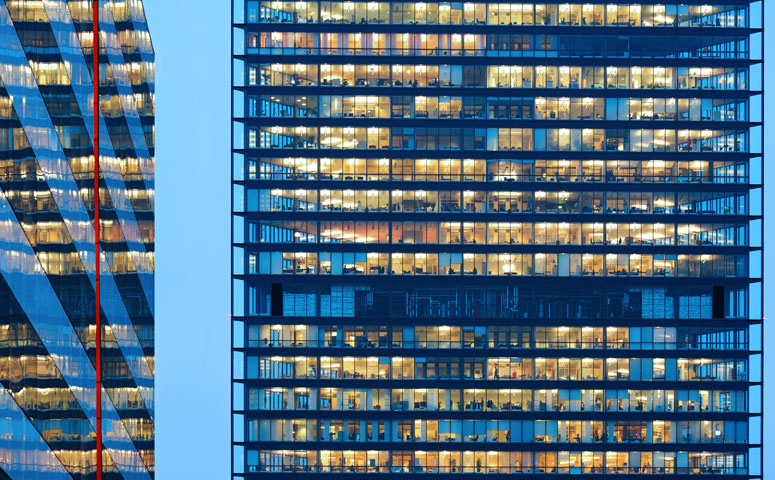
High-Performance Glass
Technology continues to vastly improve the glass used in commercial construction. High-performance glass now has multiple layers of energy efficient glazing, and the newest buildings have double panes of this stuff. It is expensive and designing a glass façade comes with a premium price, but the upfront capital can be offset by ongoing heating and cooling cost savings since it’s high-performing glazing makes it easier to maintain interior temperatures than previous traditional glazing systems. It is a game changer. And notice how much lighter the color tinting of the glass can be.

Suddenly, they really are providing floor-to-floor glass. The interstitial space is being reduced dramatically or eliminated altogether, as the various building systems are designed into vertical building penetrations rather than horizontal dead space between floors. These buildings look cool from the outside, and even cooler from the inside. Yes, there is a flood of natural light, with all of its incumbent benefits to your employee population.
Unintended Consequences
Just like in Wonderland, there are always some unintended consequences. With regards to this great new glass, I’ll mention two:
The Irvine Company
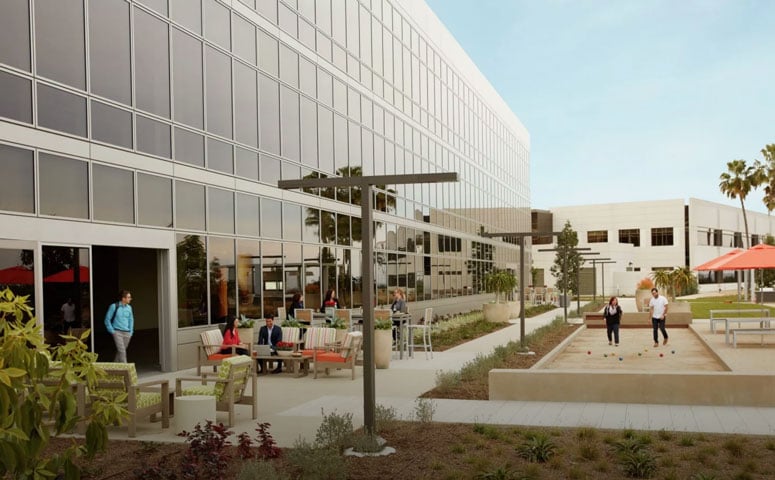
The Irvine Company used super energy efficient, triple-glazing, double-paned high-performance floor-to-ceiling glass on a new, three-story office building in San Diego. Two weeks later, all of their landscaping was dead. Yep, energy efficiency means that the glass is not absorbing the sun’s heat and is instead reflecting that heat and light down to the ground. Careful where you walk, plan your landscaping accordingly and you likely want to have a whole bunch of shade structures to protect people, animals and plants. No joke, the reflected sunlight and heat will need to be anticipated and protected against.
Salesforce Tower
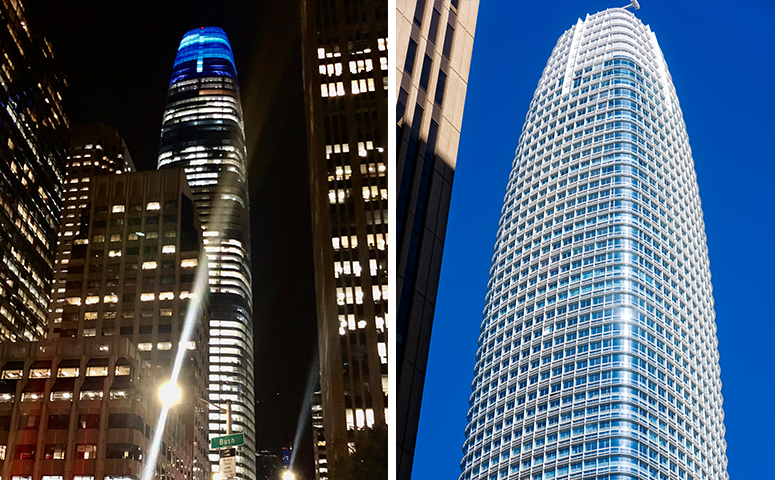
San Francisco’s newest, tallest office building, Salesforce Tower, is built with high performance, floor-to-ceiling glass. And as I was walking past the tower one recent evening, I was struck by the building’s appearance at night. All that floor to ceiling glass really shows off the varied interior lighting designs that were selected by each of the tenants on various floors, some with three floors, others with five floors, some with just one floor. It really makes for a different experience viewing the building at night compared to the building’s uniform, space-age, white, fluted exterior visible in daylight. I took a picture, but it doesn’t quite capture the quirky look at night.
OK, so there you have it. More than you ever thought you needed to know about glass. But now that you know, I bet you notice the high-performance glass when you see it. Hopefully more and more developers will choose to build with this great new product, and why not? It is highly energy efficient and it floods the space with an abundance of natural light. Just be careful during the day and notice the angle of the sun’s rays! Without a sun shade it’s no place for a tea party.
John Jarvis is a managing director at Hughes Marino, a global corporate real estate advisory firm that specializes in representing tenants and buyers. Contact John at 1-844-662-6635 or john@hughesmarino.com to learn more.



